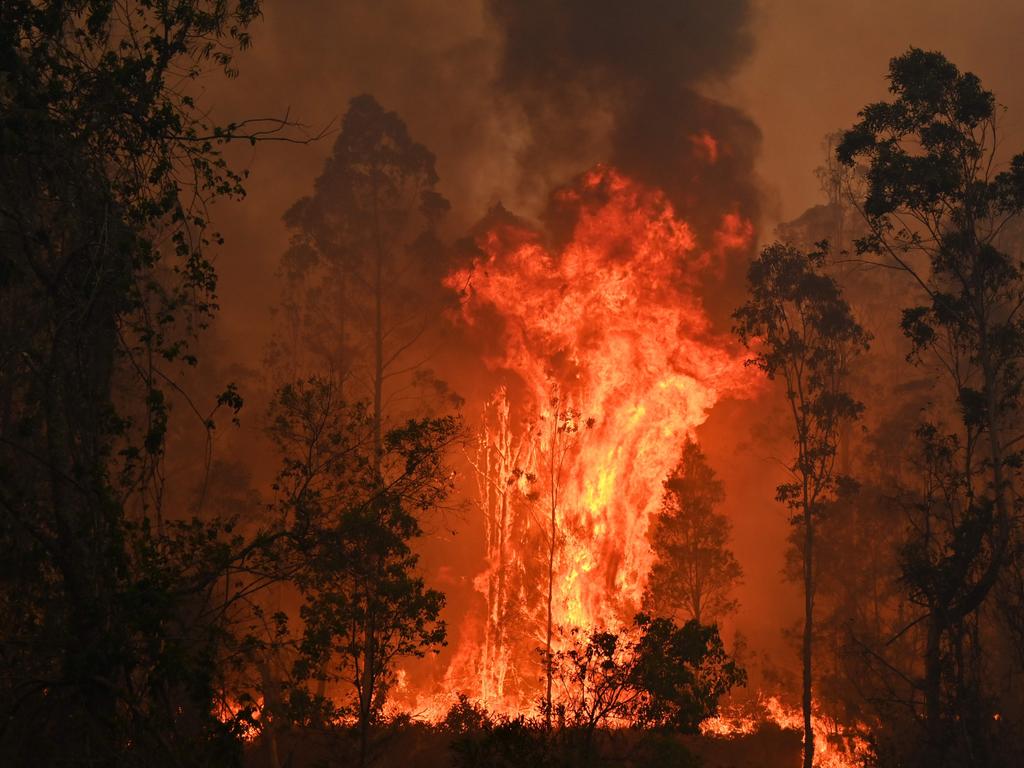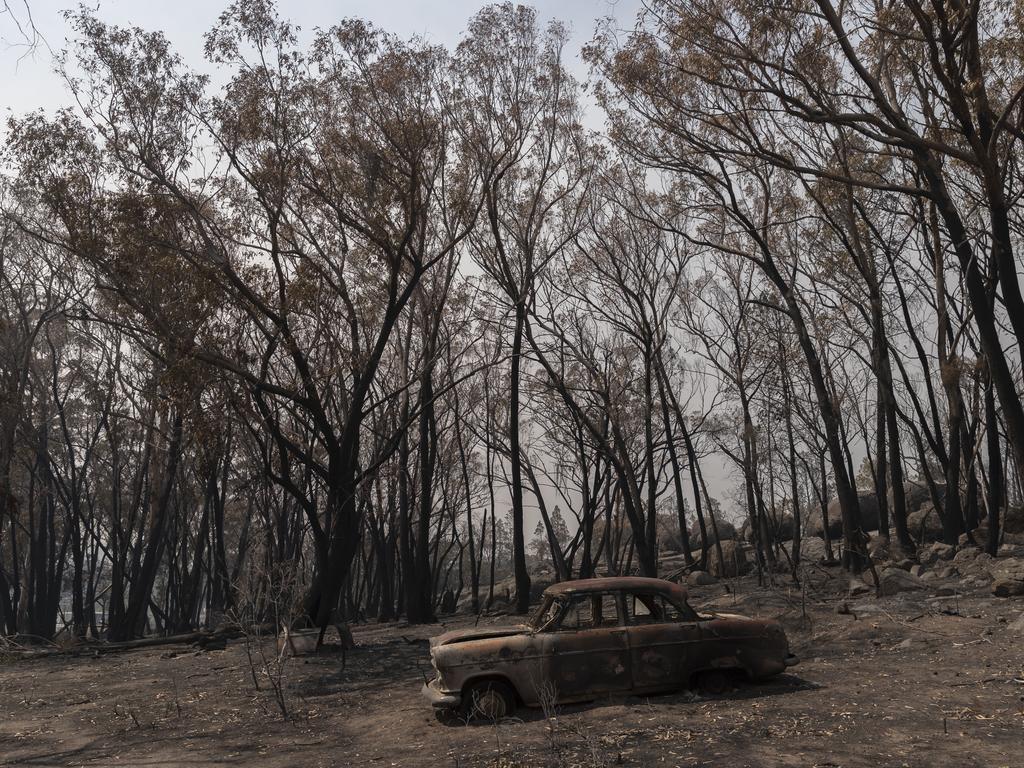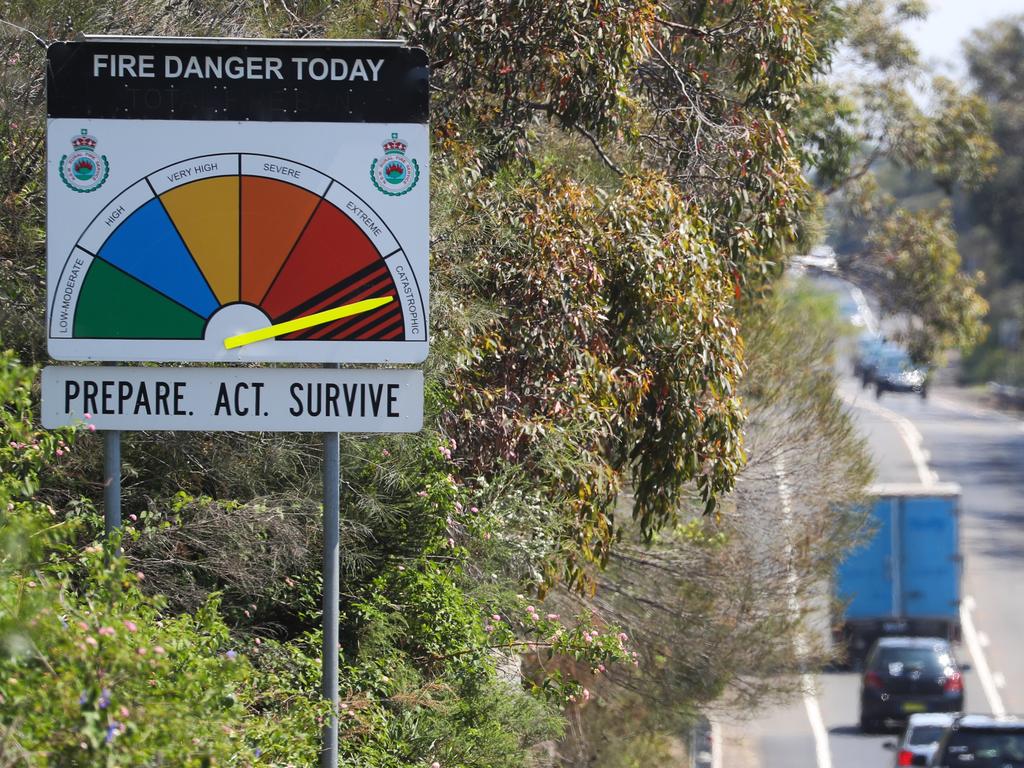Crucial bushfire lesson Aussies refuse to learn
As a nation, we are happy to loudly mock the US when they do this exact thing – but now it’s our turn, our heads are steadfastly in the sand.
COMMENT
Often the hardest times provoke the most difficult questions.
Wars, famines, floods, fires — they threaten our lives, our homes and all we hold dear. We fight the threat, rally around our communities, pray, donate and empathise for those who are suffering.
Yet in the midst of the chaos we will always ask the very human question: Why?
Why is this happening? What can we do to stop it?
It’s those two questions that prompted then Prime Minister John Howard to declare a gun amnesty 12 days after the Port Arthur massacre even though firearms were entrenched in our mythology and the accessory of choice in a land born from the bush.
And it’s those two questions that lead us to scorn America each time there’s another gruesome and all-too-common shooting rampage.
Regrettably, it’s those two questions our politicians are avoiding as fires ravage the east coast of our nation.
It’s not the time to talk about climate change, they say. It’s not the time for political pointscoring. Right now it’s about saving lives.
Of course it is. The safety of people and property should always come first but horrific events like these sharpen our hearts and our minds.
They force us to look up from our micro lives to more macro issues and to seek answers to questions which, in more settled times, we will likely ignore.
We can’t accuse the US of burying their heads in the sand on gun laws when we fail to address the very question that’s occupying people’s minds.
Just as we are more willing to open our wallets and hearts in times of crisis, so we are more open to look rigorously for the truth.
For John Howard, the most overriding truth after Martin Bryant killed 35 people in the horrific shooting in Tasmania, was that our gun laws were woefully lenient.
It didn’t mean he didn’t empathise with the families of victims or care for the wellbeing of emergency service personnel who attended the scene. He did both but he also galvanised a nation in mourning to bring about the sort of change which has inspired the world.
Climate change is clearly a different beast but in stonewalling all questions about the subject both Prime Minister Scott Morrison and NSW Premier Gladys Berejiklian are failing to read the mood.

No one is suggesting they get into nasty political debate but when your populace is fearful and attuned, leadership means addressing those concerns.
Morrison may be reluctant to use the bushfires to point out that his government is on track to meet or better the emissions target laid out in the Paris Agreement.
Likewise, he may not wish to be drawn into an argument on coal. But by simply acknowledging that climate change is a major issue for the electorate and therefore an issue for government, would go some way to engaging in a conversation the public want, and need, to have.
In times of crisis, those at the top ignore public sentiment at their peril. Having reported from London during the death of Princess Diana, it became breathtakingly clear the Queen had misjudged the feelings and needs of her people. She remained in Scotland, refused to fly the Union Jack at half-mast and was slow to make a statement about her daughter-in-law’s death. It was only when the government’s spin doctor, Alastair Campbell, stepped in and advised her to change her thinking that she engaged with the public.
Just as cause precedes effect, the bushfires should be a springboard for discussion in coming days. Of course, the priority is treating the injured and finding a place to sleep for those made homeless but by not discussing climate change our leaders are leaving a void for the more toxic and polarised to fill.

Adam Bandt, Barnaby Joyce and Michael McCormack have all jumped on the bandwagon, making crass comments that might’ve been averted if the government had taken the lead.
When Mr Joyce suggested that two victims of the fires were “most likely Greens voters” and Mr McCormack said no one needed the “ravings of some pure, enlightened and woke capital city greenies” they divided the nation at a time when unity was most needed.
Just as New Zealand Prime Minister Jacinda Ardern stepped up with a clear and uniting message after the Christchurch shootings so our leaders could acknowledge that climate change is part of the larger puzzle.
Imagine if the allies during the Second World War simply fought valiantly with no thought of a lasting solution. We might’ve ended up with World War III.

As former Fire and Rescue NSW commissioner Greg Mullins has stated, we don’t want to detract from the vital safety messages being broadcast as the fires rage.
But in laying out the evidence that climate change is at the heart of our extreme weather and fires, he argues that we need to address why these conditions are “unprecedented”.
As he says, if we don’t have the conversation now, “then when?”
Angela Mollard is a freelance writer @angelamollard



